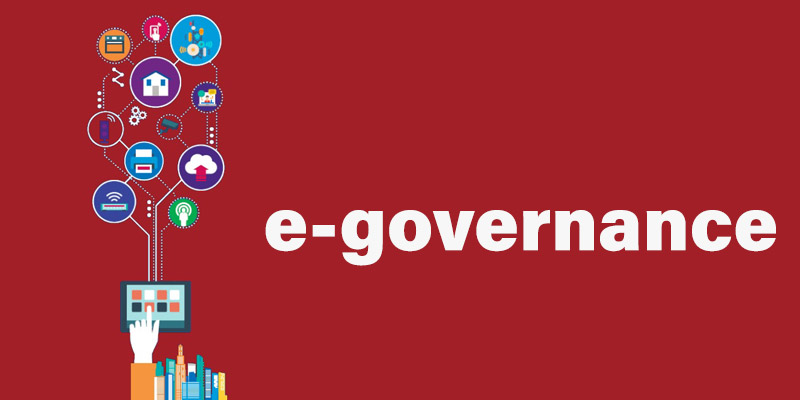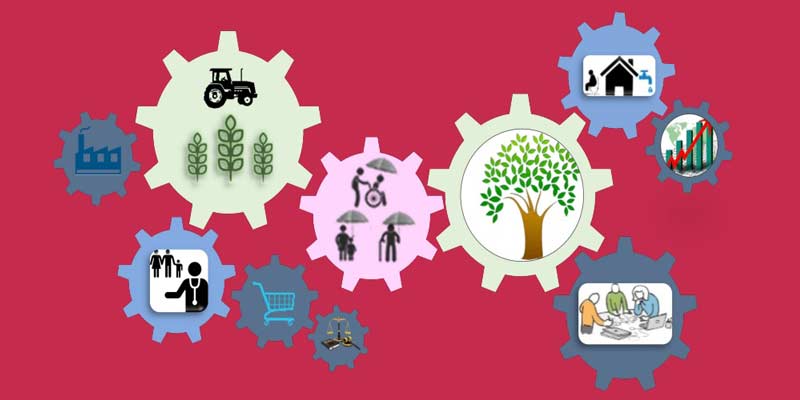- India
- May 26
CM Vijayan declares Kerala as India’s first fully e-governed state
• Chief Minister Pinarayi Vijayan declared Kerala as India’s first fully e-governed state where an entire range of government services have been digitised so that they can be provided to the citizens promptly and transparently.
• CM Vijayan said it would not only create a network of government offices and citizens, but would use technology for Kerala’s development and empower the people by bridging the digital divide.
• It would also fast-track the journey towards a knowledge society and economy with total e-literacy.
• Kerala is the first state in India to declare access to the Internet as a citizen’s right.
• The state government has built a single window service delivery mechanism called ‘e-Sevanam’ which integrates more than 800 government services.
• The state IT Mission has also created a set of digitised platforms and applications including e-Office File Flow, taking it down to the village office level.
• Setting up the country’s first digital university in the state and launch of the digital science park project worth Rs 1,500 crore were the other major steps taken by the government to bridge the digital divide and bring about total e-governance.
What is e-governance?
• The “e” in e-governance stands for ‘electronic’. Thus, e-governance is basically associated with carrying out the functions and achieving the results of governance
through the utilisation of Information and Communications Technology (ICT).
• The reason why countries around the world are increasingly opting for ‘e-governance’ is that governance per se has become more complex and varied in the last few decades and more importantly, citizens’ expectations from government have increased manifold.
• ICT facilitates efficient storing and retrieval of data, instantaneous transmission of information, processing information and data faster than the earlier manual systems, speeding up governmental processes, taking decisions expeditiously and judiciously, increasing transparency and enforcing accountability. It also helps in increasing the reach of the government.
• The emergence of ICT has provided means for faster and better communication, efficient storage, retrieval and processing of data and exchange and utilisation of information to its users — individuals, groups, businesses, organisations or governments.
UNESCO defines e-governance as:
Governance refers to the exercise of political, economic and administrative authority in the management of a country’s affairs, including citizens’ articulation of their interests and exercise of their legal rights and obligations. E-governance may be understood as the performance of this governance via the electronic medium in order to facilitate an efficient, speedy and transparent process of disseminating information to the public, and other agencies, and for performing government administration activities.
Basically, e-governance is generally understood as the use of ICT at all levels of the government in order to provide services to the citizens, interaction with business enterprises and communication and exchange of information between different agencies of the government in a speedy, convenient, efficient and transparent manner.
Advantages of e-governance:
i) Fast, convenient and cost-effective service delivery: With the advent of e-service delivery, the government can provide information and services at lesser costs, in reduced time and with greater convenience.
ii) Transparency, accountability and reduced corruption: Dissemination of information through ICT increases transparency, ensures accountability and prevents corruption. An increased use of computers and web-based services improves the awareness levels of citizens about their rights and powers. It helps to reduce the discretionary powers of government officials and curtail corruption.
iii) Expanded reach of governance: Expansion of telephone network, rapid strides in mobile telephony, spread of Internet and strengthening of other communications infrastructure would facilitate delivery of number of public services.
iv) Empowering people through information: Increased accessibility to information has empowered the citizens and has enhanced their participation. With easy access to the government services, the faith of the citizens in the government increases and they come forward to share their views and feedback.
Manorama Yearbook app is now available on Google Play Store and iOS App Store


